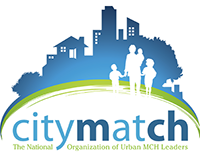Preconception Health and Health Care (download)
Executive Summary
This report summarizes opportunities to accelerate progress in preconception health and health care over the next five years. In November 2014, the W.F. Kellogg Foundation provided resources to CityMatCH for a Reconvened Select Panel on Preconception Health and Health Care to discuss successful strategies over the past decade, identify missed opportunities, and focus on potential future direction. Coming together a decade after the initial Select Panel on Preconception Care was convened by CDC, participants in the Reconvened Select Panel included the same individuals or organizations when possible, and added additional experts as necessary. Similar to the original group, the Reconvened Select Panel represented subject matter expertise in clinical care, public health, research, health policy, and other disciplines.
Over the past decade, the topic of preconception health and health care has grown from a concept with a few knowledgeable supporters to a movement embraced by health care leaders and champions. The National Preconception Health and Health Care (PCHHC) Initiative is a public-private effort designed to: convene key stakeholders, guide implementation of recommendations, and provide leadership to anchor national, state, and local activities. Between 2004 and 2014, the PCHHC Initiative held three national summit meetings, supported five implementation work groups, and published various reports and articles, including four journal supplements. At the same time, states and communities took action to monitor, deliver, and improve preconception health and health care. Yet, the PCHHC recommendations of 2006 are not yet fulfilled—most women do not receive preconception care, and much work remains.
The Reconvened Select Panel recommended increased focus and clear actions to improve preconception health and health care. To improve preconception health at the population level, the Panel calls for emphasis on: 1) action to shift social determinants of health; 2) engagement of and social marketing to consumers and 3) public health; and 4) community preventive services. For health care, the Panel recommended emphasis on: 1) implementation of the women’s clinical preventive services benefits under the Affordable Care Act, particularly well-woman visits that include preconception care; 2) development and implementation of clinical care supports and tools; 3) action to improve provider knowledge, attitudes, and behaviors, and maximize changes in the health care system; and 4) enhanced use of technology and health information technology.
In addition, the Panel identified a number of areas in need of crosscutting action to advance implementation of national recommendations for preconception health and health care. First and foremost is for the PCHHC Initiative to increase focus on measurement of process and outcomes for accountability. Also, augmented resources, new partnerships, and clearer messages are needed to advance preconception health and health care.
Finally, the Reconvened Select Panel stressed that leaders should envision the future and advance action as resources become available, deeming this an appropriate strategy for a large-scale initiative to improve population health and health care.

